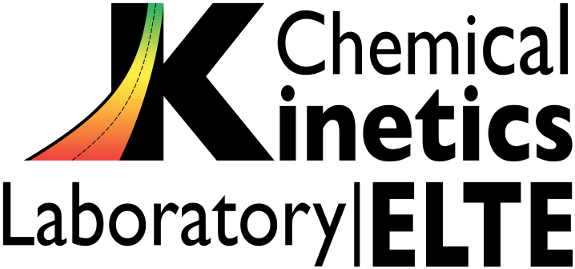ELTE Eötvös Loránd University
1117 Budapest Pázmány Péter sétány 1/A, Hungary
room 637 extension 1108
room 638 extension 1109
room 643 extension 1909
e-mail: turanyi@chem.elte.hu

Comparison of methane combustion mechanisms using concentration measurements
Peng Zhang, István Gyula Zsély, Máté Papp, Ákos Veres-Ravai, Boyang Su, Tibor Nagy, Bin Yang, Tamás Turányi

A large amount of concentration measurement data from combustion experiments carried out in flow reactors, jet-stirred reactors, and shock tubes for methane (+ H2/CO)-oxygen-diluent mixtures covering wide ranges of temperature, pressure, equivalence ratio, and diluent ratio were collected from 45 publications. Altogether, 35420 concentration data points in 965 datasets were encoded in 332 XML data files and made available on the ReSpecTh site (https://respecth.hu). The measured species are CH4, C2H2, C2H4, C2H6, aC3H4 (allene), pC3H4 (propyne), C3H6 (propene), C3H8, C4H2 (diacetylene), C4H4 (vinylacetylene), C6H6 (benzene), CH2O, CH3OH, C2H5OH, O2, CO, CO2, H2, and H2O. In some shock tube measurements, the concentrations of radicals CH, CH3, and OH were also measured. The diluents were N2, H2O, CO2, Ar and He. The performance of 13 methane combustion mechanisms was analysed based on their capability to reproduce concentration measurements across various experimental types and conditions. A novel consideration of temperature uncertainty was proposed and applied in the performance evaluation of models. The mechanisms Aramco-II-2016, Konnov-2017, NUIG1.1-2021, Glarborg-2018, Caltech-2015, and FFCM-I-2016 were the best-performing mechanisms in ascending order of error. Aramco-II-2016 reproduces the concentrations of flow reactors the best, especially for CH4, O2, CO, CO2, CH3OH, and C2 hydrocarbons. Konnov-2017 is good at predicting concentrations in shock tubes, and FFCM-I-2016 has the overall lowest errors for helium-containing measurements. Local sensitivity analysis based on the Aramco-II-2016 mechanism identified 42 important elementary reactions. Directly measured and theoretically calculated rate coefficients (1879 data points in 133 datasets) were collected for these elementary reactions and compared with those used in the investigated methane combustion mechanisms.
Continue reading...

Optima++ is a general framework for manipulating experimental data related to combustion chemistry, carrying out simulations of such experiments, performing model optimization and analysis, and providing auxiliary features for the above tasks. Optima++ is able to handle simulation codes Cantera, FlameMaster, OpenSMOKE++ and ZeroRK. Also, Chemkin Pro is coming soon.
An interactive web site, where the users may find Arrhenius parameters of gas phase elementary reactions determined in direct measurements, theoretical calculations or have been used in modelling studies. The users may recalculate the uncertainty limits of the rate coefficients. The editors have the right to upload data sheets for new reactions and to add, delete or modify existing data sheets. The editor status may be granted to any registered user upon request to the administrator.
Visit k-evaluation web page
Reaction fluxes of a combustion simulation can be visualized in the forms of still pictures and videos.
We maintain a collection of a series of Chemkin-format reaction mechanisms for the combustion of the following fuels:
hydrogen, syngas, methanol, ethanol, methane, butanol, fuels+NOx.



